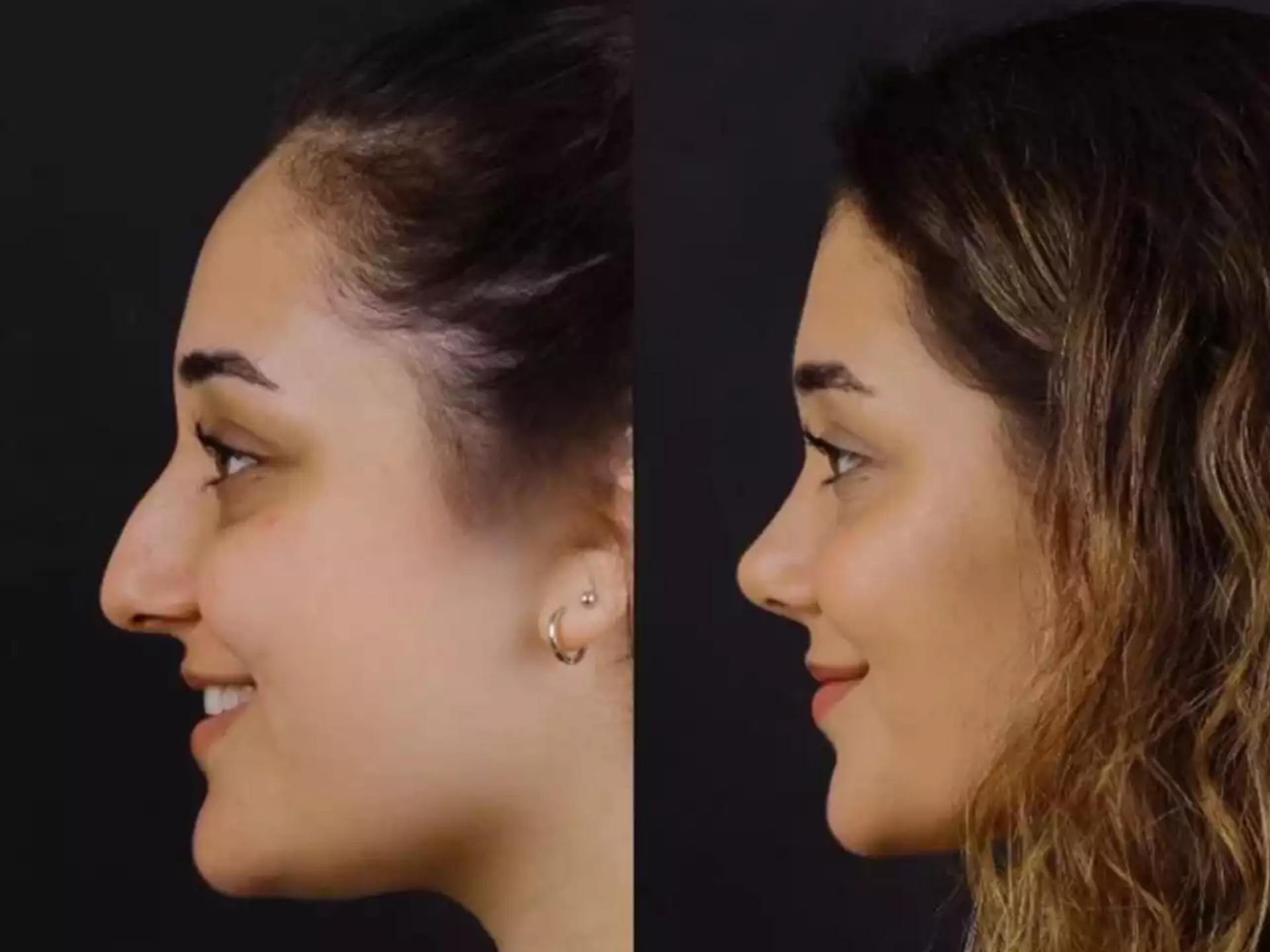If you live with diabetes and have noticed a persistent burning, tingling, or scalding sensation in your mouth, you’re not imagining it. The discomfort can affect your tongue, lips, gums, or palate, making eating, speaking, or even resting unpleasant. Yet when you look in the mirror, everything seems perfectly normal. This distressing condition is known as Burning Mouth Syndrome (BMS) — and research shows that it can occur more often in people with diabetes.
As a physician specializing in oral medicine, I’ve met many patients who have struggled for years with unexplained mouth pain before discovering that diabetes and BMS can be linked. The good news is that effective treatments exist — both medical and natural — that can help you regain comfort and confidence.
I’ll explain how diabetes contributes to burning mouth symptoms, what treatments have proven effective, and how to manage both conditions for lasting relief.
What Is Burning Mouth Syndrome?
Burning Mouth Syndrome (BMS) is a chronic pain condition where you feel a burning, scalding, or tingling sensation in your mouth without any visible lesions or infection. The tongue is the most commonly affected area, but the pain can also involve the lips, gums, and inner cheeks.
People often describe it as feeling like they’ve burned their mouth on hot food, but the sensation doesn’t go away. For some, it’s constant throughout the day; for others, it may worsen as the day progresses.
How Diabetes and Burning Mouth Syndrome Are Connected
Diabetes can affect nearly every part of your body, and the mouth is no exception. High blood sugar levels over time can damage small nerves and blood vessels, interfere with saliva production, and alter taste — all of which can contribute to Burning Mouth Syndrome and Diabetes: Effective Ways to Relieve the Pain becoming closely linked.
Here are the main ways diabetes can increase your risk of BMS:
1. Nerve Damage (Diabetic Neuropathy)
Persistent high glucose levels can damage peripheral nerves, including those responsible for sensation in your mouth and tongue. When these nerves misfire, they can create a constant burning or tingling sensation.
2. Reduced Saliva (Dry Mouth)
People with diabetes are prone to xerostomia, or dry mouth, due to dehydration and reduced salivary gland function. A lack of saliva can make tissues more sensitive, causing burning, soreness, and taste disturbances.
3. Fungal Infections (Oral Thrush)
High sugar levels in saliva create a perfect environment for fungal overgrowth, particularly Candida albicans. Oral thrush often causes a sore, burning sensation on the tongue and inner cheeks.
4. Nutritional Deficiencies
Diabetes can sometimes interfere with the absorption of essential nutrients like vitamin B12, folate, iron, and zinc — all of which play key roles in maintaining healthy nerves and oral tissue.
5. Medication Side Effects
Some diabetes medications or accompanying treatments (like blood pressure tablets or antidepressants) can cause dry mouth or taste changes, worsening BMS symptoms.
Why Managing Both Conditions Matters
If you’re managing diabetes and begin to notice persistent oral burning, it’s important to address both issues together. Treating your diabetes more effectively can help improve nerve function and reduce dryness, while targeted therapy for BMS can provide faster relief.
Ignoring the symptoms may not only prolong discomfort but also increase the risk of nutritional deficiencies and oral infections. That’s why early assessment by your dentist or oral medicine specialist is vital.
Diagnosis: Ruling Out Other Causes
Before treatment begins, your healthcare professional will want to identify any underlying causes of the burning sensation. This may involve:
- Blood tests – to check glucose levels, vitamin B12, iron, and thyroid function.
- Oral examination – to rule out infection, allergies, or mechanical irritation.
- Medication review – to identify drugs that could worsen dry mouth or nerve pain.
- Saliva and fungal tests – to detect oral thrush or bacterial imbalance.
Once other causes are ruled out, the focus shifts to managing Burning Mouth Syndrome and Diabetes: Effective Ways to Relieve the Pain together through a combination of medication, nutritional support, and lifestyle care.
Top Medication Options for Burning Mouth Relief
For many patients, prescription or over-the-counter medications can help calm the burning and improve quality of life. Here are some of the most effective options currently available.
1. Topical Clonazepam
This medication acts directly on overactive oral nerves. You dissolve a lozenge or rinse solution in your mouth for a few minutes before spitting it out. It helps reduce nerve excitability and offers relief within a few weeks for many people.
2. Capsaicin Rinse
Derived from chili peppers, capsaicin works by desensitizing nerve endings over time. Under medical supervision, it can help reduce burning, although initial irritation is common.
3. Alpha-Lipoid Acid (ALA)
This antioxidant has shown promise in improving nerve health and reducing pain in both diabetic neuropathy and BMS. Many doctors recommend 600 mg daily as part of a structured plan.
More about this and similar approaches can be explored in Burning Mouth Syndrome Dietary Supplement.
4. Anticonvulsant Medications
Drugs such as gabapentin or pregabalin help calm misfiring nerves and are often prescribed when BMS pain is linked to diabetic neuropathy.
5. Low-Dose Antidepressants
Medications like amitriptyline or duloxetine can reduce pain signalling in the brain. They’re particularly helpful when chronic discomfort also affects mood or sleep.
6. Antifungal Medication
If oral thrush is found, antifungal lozenges or rinses can clear the infection and significantly ease burning sensations.
Natural and Nutritional Treatments
Many people living with diabetes prefer complementary or natural strategies to support healing and nerve recovery. While these shouldn’t replace prescribed medication, they can be valuable additions.
1. Vitamin and Mineral Support
B vitamins (especially B12), iron, folate, and zinc are essential for nerve and mucosal health. If your blood tests reveal deficiencies, correcting them can make a noticeable difference.
2. Alpha-Lipoic Acid Supplements
As mentioned earlier, ALA acts as both an antioxidant and a nerve protector. It’s often discussed in Burning Mouth Syndrome Dietary Supplement articles because it supports diabetic nerve function as well as oral health.
3. Omega-3 Fatty Acids
These essential fats help reduce inflammation and support cell repair, potentially easing nerve pain.
4. All-Natural Herbal Remedies
Some people explore options like aloe vera gel, chamomile mouth rinses, or green tea extracts for their soothing and anti-inflammatory properties. You can find more about these in Burning Mouth Syndrome Natural Treatment.
Others try multi-ingredient formulas marketed as All Natural Organic Supplements, which may include herbs, vitamins, and antioxidants designed to support nerve regeneration. Always discuss these with your healthcare provider to ensure safety and compatibility with your diabetes medication.
Lifestyle and Self-Care Strategies
Living with diabetes requires daily attention — and managing BMS adds another layer. However, small changes can help ease the pain and improve comfort.
1. Keep Blood Sugar Under Control
Stable glucose levels reduce nerve inflammation and help saliva production. Follow your diabetes plan closely and monitor blood sugar regularly.
2. Stay Hydrated
Sip water throughout the day and use sugar-free chewing gum or lozenges to stimulate saliva.
3. Avoid Irritants
Limit spicy, acidic, or very hot foods. Avoid alcohol-based mouthwashes and tobacco, as they can worsen dryness.
4. Stress Management
Stress and anxiety can intensify pain perception. Mindfulness, gentle yoga, or breathing exercises can make a significant difference.
5. Good Sleep Hygiene
Pain often feels worse when you’re tired. Priorities consistent sleep and relaxation routines to help your nervous system recover.
The Role of Hormones and Gender
BMS is more common in post-menopausal women, and diabetes can amplify this risk. Hormonal changes can make oral tissues thinner and more sensitive, while fluctuating glucose levels add further irritation.
For some women, hormone replacement therapy (HRT) may help — but this should always be discussed with your GP or endocrinologist to weigh the benefits and risks, especially if diabetes is present.
Emerging Treatments and Research
Scientists continue to explore new methods to relieve BMS symptoms in diabetic patients. Some promising developments include:
1. Low-Level Laser Therapy (LLLT)
This light-based treatment stimulates tissue repair and reduces nerve pain. It’s painless and may be offered by specialists trained in oral laser therapy.
2. Repetitive Trans cranial Magnetic Stimulation (rTMS)
Still in research stages, this brain stimulation therapy aims to reset pain processing pathways, showing promise in chronic neuropathic pain conditions.
3. Combination Therapy
Recent studies suggest that using topical clonazepam together with alpha-lipoic acid supplements may produce better results than either treatment alone.
4. Salivary Growth Factor Therapy
Researchers are examining whether restoring nerve growth factors in saliva could help repair damaged oral nerves in diabetic patients.
Coping with Emotional and Psychological Effects
Living with chronic pain can be emotionally draining. It’s common to feel frustrated or anxious, especially if symptoms persist for months. Addressing the emotional aspect of Burning Mouth Syndrome and Diabetes: Effective Ways to Relieve the Pain is just as important as managing the physical one.
1. Cognitive Behavioural Therapy (CBT)
CBT teaches coping techniques that help reduce pain intensity and emotional distress.
2. Support Networks
Joining support groups, either online or in-person, helps you connect with others who understand your experience.
3. Open Communication with Your Care Team
Regular follow-ups with your GP, dentist, and diabetes nurse ensure that both conditions remain under control.
Practical Steps You Can Take Today
If you’re struggling with oral burning and you have diabetes, here’s a practical plan to start improving your comfort:
- Book a full dental and medical assessment to confirm BMS and rule out infection.
- Review your medications for potential dry-mouth side effects.
- Ask your doctor about topical clonazepam or ALA supplements.
- Manage blood glucose tightly — consistent readings can make a big difference.
- Keep a food and symptom diary to identify triggers.
- Use saliva substitutes or xylitol-based chewing gum.
- Try relaxation techniques to reduce stress-related flare-ups.
- Read up on Burning Mouth Syndrome Natural Treatment for complementary relief ideas.
Living Well with BMS and Diabetes
Many people achieve significant improvement once they identify triggers and combine the right treatments. Relief may take several weeks, but consistency pays off. With the right care, you can enjoy food again, speak comfortably, and feel more in control.
BMS can feel isolating, but you’re not alone. Your healthcare team can guide you through options that work for both your diabetes and your mouth comfort.
Key Takeaway
Burning Mouth Syndrome and Diabetes: Effective Ways to Relieve the Pain involves a combination of controlling blood sugar, supporting nerve health, and soothing oral tissues. By working closely with your healthcare provider, exploring options like Burning Mouth Medication, and considering supportive approaches such as Burning Mouth Syndrome Dietary Supplement or All Natural Organic Supplements, you can find lasting relief and regain quality of life.



